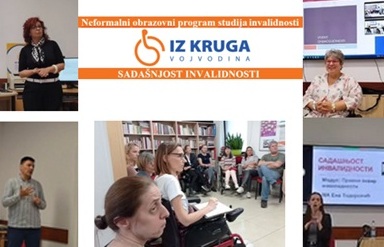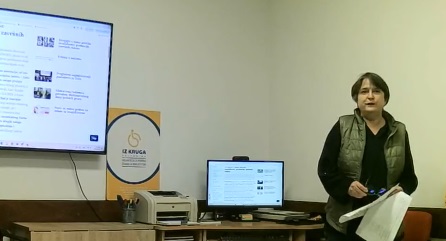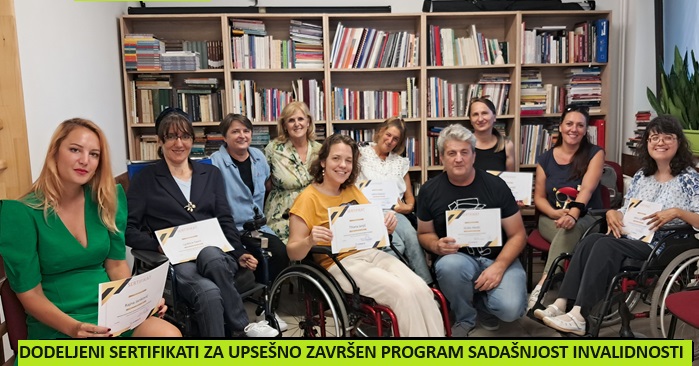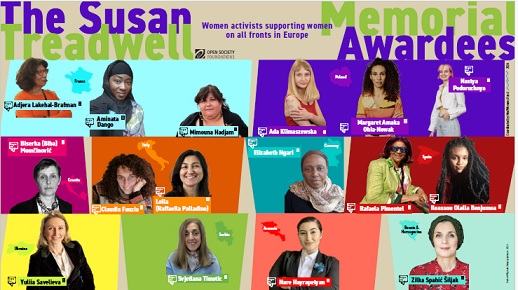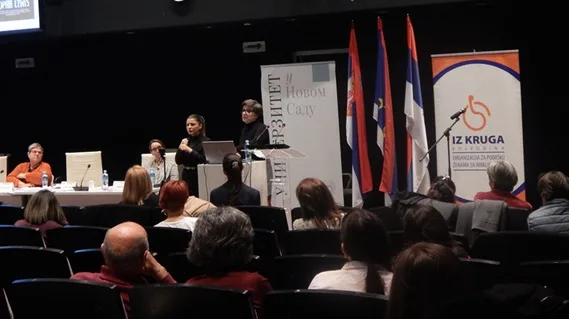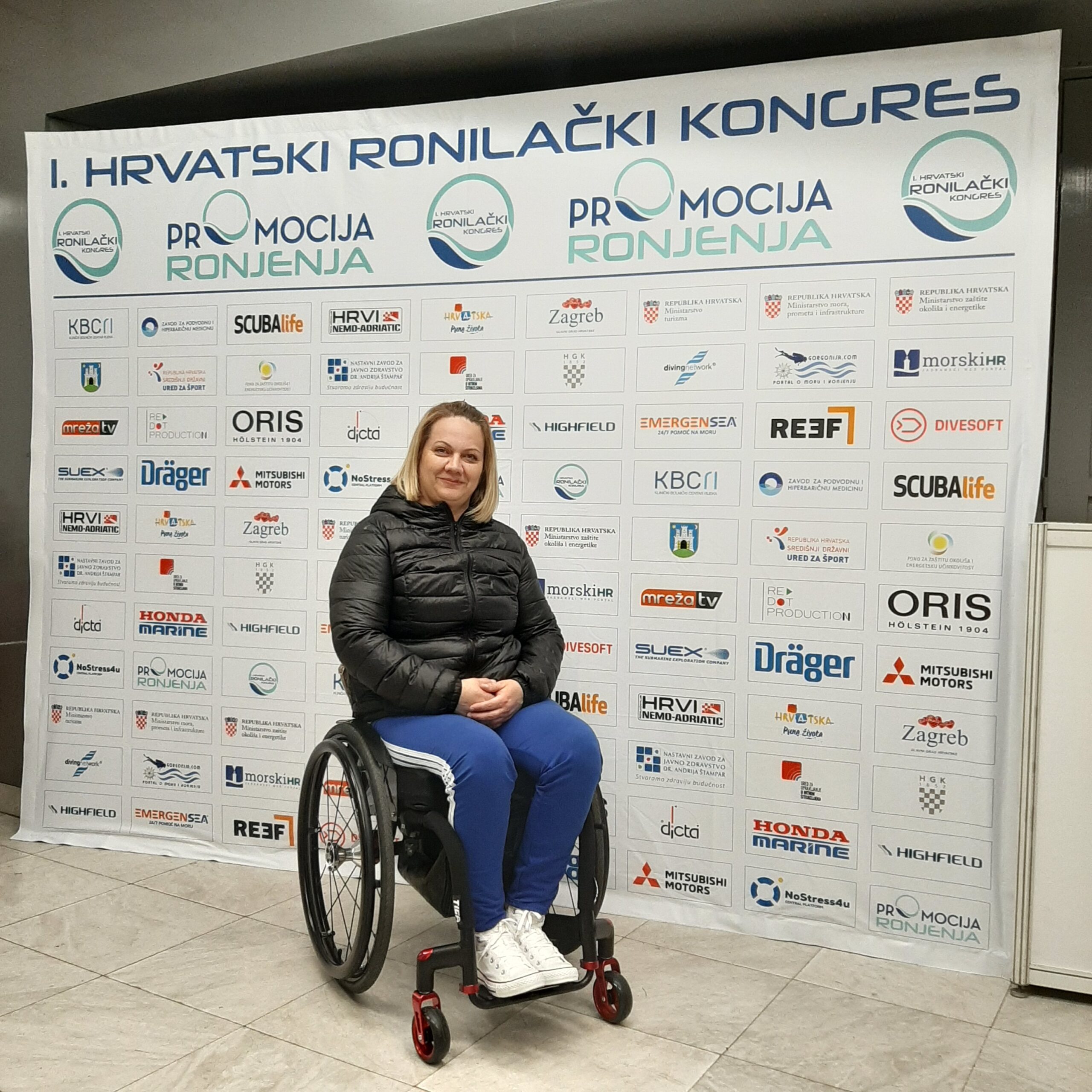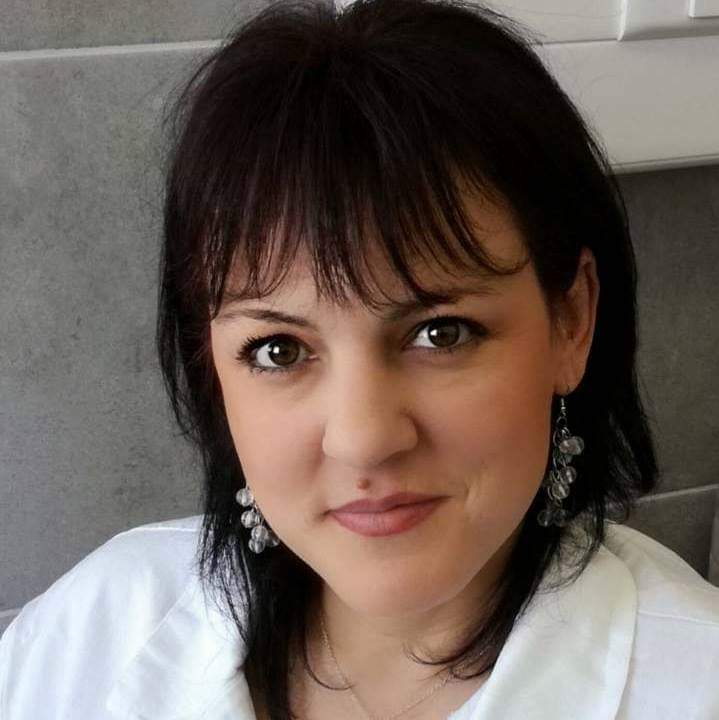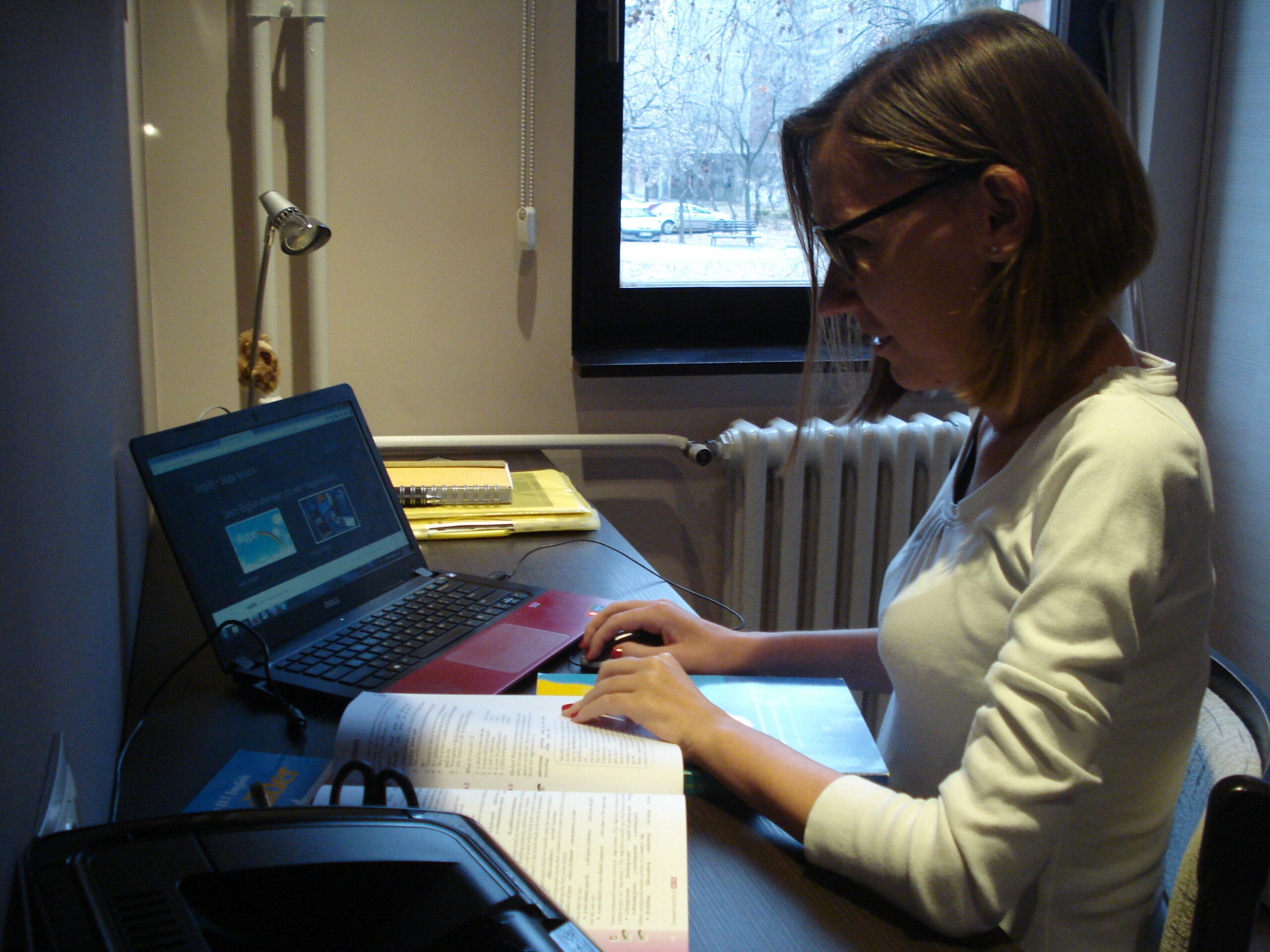We asked women with disabilities what their daily life looks like during the pandemic. What they go through from morning to evening, what activities keep them busy, what do they talk about with themselves or other members of the household, what changed in their daily routine, what are their greatest obstacles under the new circumstances and how do they overcome them, what aspects of their characters help them or make it more difficult to cope with the situation, what are their sources of support, is there a good side to what is going on, what new things have they discovered about themselves during the state of emergency, how does isolation affect their relations with others, what makes them angry, are their days in isolation too long or too short, what is the first thing they will do when this is over…? This is how the instant column Quarantine Notes on the Disability Portal came to be. Below are the notes of Olivera Ilkić, activist for rights of persons with disabilities, with years-long experience in provision of support to women with or without disabilities in cases of violence.
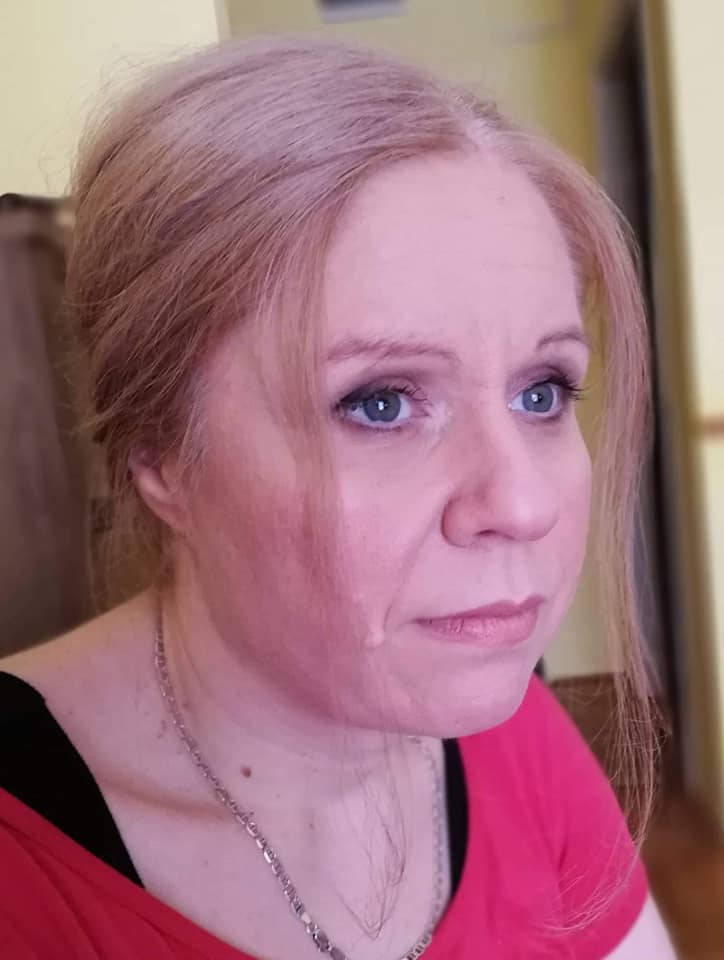
I am already up at around seven. First, I read the news on my phone, see what’s new, I check Facebook to see what’s going on, then I get up. I get dressed, tidy up around the house, I exchange messages with my sister to see how she got to work (she works at a private textile factory, they are currently sewing masks). When I finish that, I turn the TV on, often just to have some sound in the house. Sometimes I watch the program, film channels most often, crime series, animated films for children cheer me up too. I communicate with my cousins, friends through the internet, sometimes we talk on the phone, I check how they are coping in isolation, how they organize grocery shopping if they have disabilities. When my sister gets back from work, we have coffee together, we eat, tidy up, talk about how our day was, we watch the news and sometimes a movie, and the day is done.
I tell myself this is not the first time I’m in a situation requiring caution, that it will not last forever and that I have to be calm and patient. My sister and I talk about how we spent the day, how much money we have left for everyday life until the next pay, about new information concerning the curfew, because she works until 3 p.m., which is also until when the shops work, so she rushes to get there before closing time. The hardest thing for me is to see how tired she is when she gets back from work, where she really works hard, and her work is undervalued even under these circumstances. She is careful, she wears a mask she sewed herself and the gloves she got at work, we follow doctors’ instructions and we have no fear of getting infected.
In regular circumstances, I live alone, and I have an elder care home assistant who comes for two hours every day, from 7 to 9 in the morning. She does the shopping, pays the bills, helps me with the cleaning, I have my morning coffee with her. I moved in with my sister temporarily, as my home assistant can only bring me bread and milk, without entering the flat. No matter how close my sister and I are, we are both used to living alone, so we are now getting used to living together again. We’re lucky because we’re both tolerant. We miss direct contact with people, as the only contact with other people we have is over the phone or the internet.
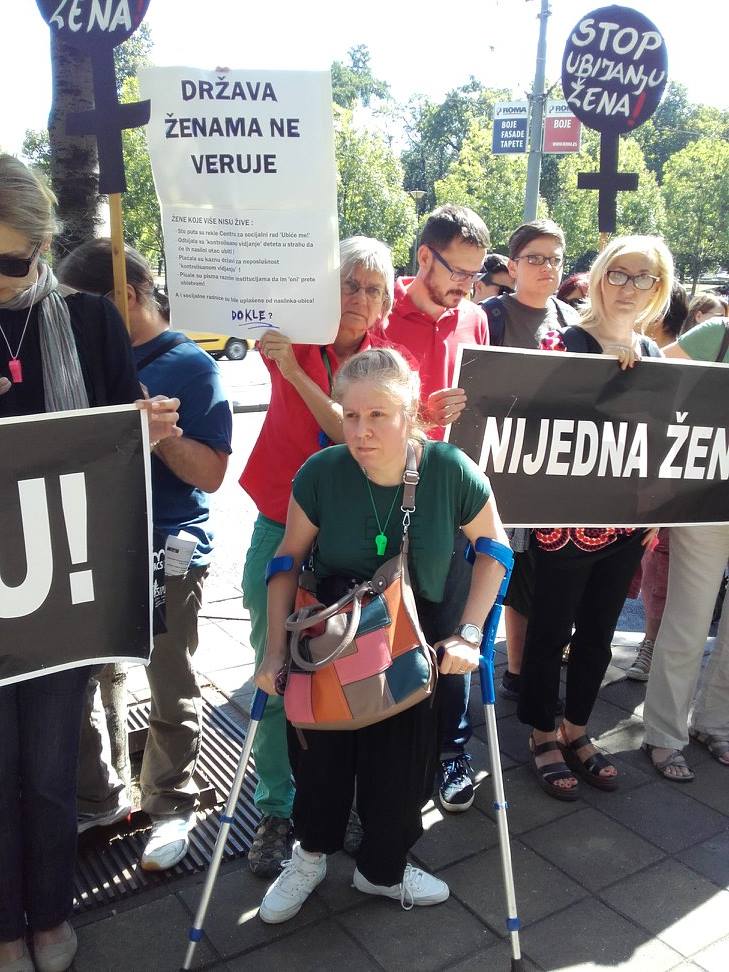
I focus my energy on searching for information about who persons with disabilities can turn to for support during the state of emergency. In that sense, I am glad the organization FemPlatz thought of me and some of my friends who I cooperated with before, who were also thinking about the same topic. When this whole thing started, I first called a friend who I knew had no support and organized for some mutual friends to get her all she needs to last her for at least a month. I am thankful to all who are ready to help in any way. I remind people who have decided to volunteer and who are connecting through different Facebook groups not to forget about persons with disabilities.
Many were shocked when they realized that the support of the Red Cross and volunteers organized by the state was not directed towards us at the moment. They thought this was implied.
Friends without disabilities are important to me, for whom this may be the first time facing isolation and spending time in closed space. I understand them, as I am often in isolation during winter and I have experience with this, I try to show them I am there for them and that they can write and call for whatever they may need.
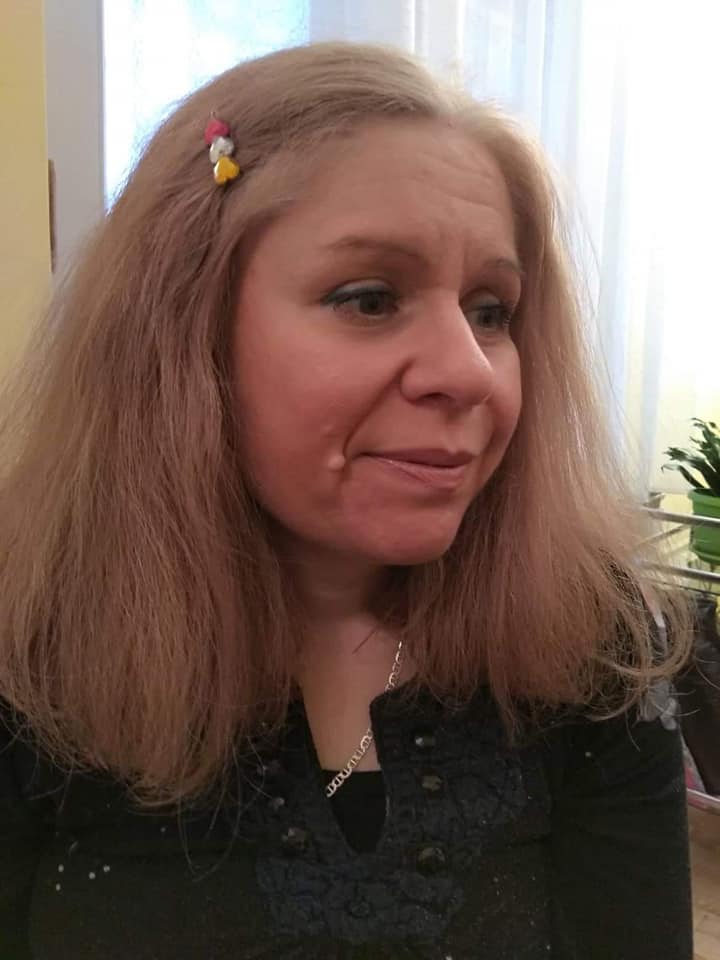
I didn’t discover many new things about myself, the only evidently different thing is that I don’t have enough concentration to read as much as before and I am very sorry about this. I hope this is only temporary. I am lucky that I am very calm, rational and composed in crisis situations. That’s how it was during the bombardment which I spent and survived in Rakovica, a part of Belgrade that was bombarded daily during the great economic crisis and wars in the early nineties. These characteristics are important to me generally, as I worked for a long time on the SOS helpline for women with disabilities who survived violence. I feel better when I control my own emotions and when I don’t let them control me. Every emotion is okay, but for me it is important to express it when I assess that this is safe, both for me and for others. I don’t respond to restrictions well. Before, when they told me I wasn’t allowed to do something, I would usually do everything to prove the opposite, which even helped me, because it often meant pushing my own boundaries and getting out of my comfort zone. Now I tell myself:You can do anything, but you won’t right now, because you’re smart!Of course I am not allowed to and I know this, but at this moment I need to believe that it is my own decision, so that I have a sense of control over my life in this chaos in which we know close to nothing.
One good thing about this situation is civic solidarity. It was present before, in all crises we found ourselves in. When everything around us seems to be in chaos, uncertain, poorly organized in the sense of the response of state institutions to how this affects the lives of ordinary people, those with the least social power, I think civic solidarity is omnipresent and invaluable. Somehow, we see each other more clearly, we are ready to share our energy, emotions, and all other resources, to help those around us. Many friends without disabilities called me to check if I needed help with getting groceries, if I knew anyone in need of psychological support… They want to help. Some of them are feminists. A lot of them, before becoming friends with me and my feminist friends with disabilities, did not even think about this. This is important to me because it means that women with disabilities succeeded in becoming visible in the feminist movement and this makes me proud!
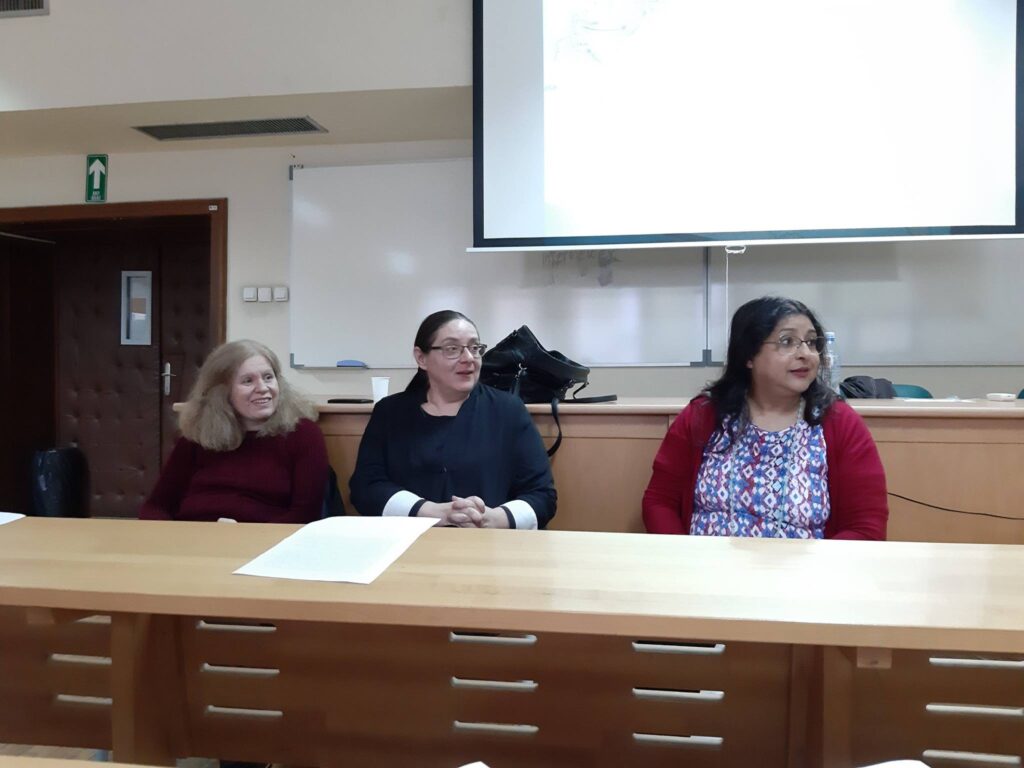
What makes me angry is that I didn’t notice that traditional associations of persons with disabilities did anything to inform their members about sources of support. There are positive examples too, of the traditional organizations the only I know is the Association of Cerebral and Child Palsy from Užice, others that I know that are doing everything they can and provide active support are: … IZ KRUGA VOJVODINA, MDRI, … IZ KRUGA – BEOGRAD, Beli štap (Eng. White Stick), … IZ KRUGA – NIŠ, USH (Union of Students with Disabilities) which provides support to youth with disabilities and FemPlatz, providing support to women living in institutions.
I get furious when I hear politicians treat some groups differently than others in these circumstances. They ask some of them to respect doctors’ recommendations, they send volunteers, some they scold, they treat us like naughty children (and generally like children), they publicly show their frustrations, they ask us to praise them for the job they’re paid to do. For them, some citizens don’t exist even under these circumstances. I didn’t hear them mentioning homes for permanent stay of persons with disabilities when they talked about the situation in homes for the elderly.
They don’t mention people living with chronic respiratory disease, rare diseases, people suffering from cancer, people whose lives are endangered every day even without this virus. They don’t sent volunteers to support parents with children with disabilities, though for many of these children even a mild form of infection could be a life endangering condition.
They talk about the importance of personal hygiene and isolation and about the prevention of infection, but they don’t mention how this could be achieved by persons living in unhygienic settlements, homeless people living in the streets, while public toilets and drinking fountains are not operating. How do they expect persons with disabilities to do this, who live alone and don’t have personal assistance now? Not to me misunderstood, of course it’s important to help senior citizens, but I believe it is important to know we are all in this together and that each of us can be vulnerable.
When this is all over, I will go back home and try to see as many of my friends as possible, with some of them I will go to an outside café, some I will invite over to my home, I will go to the hairdresser’s…
Translated by: Marina Ileš
